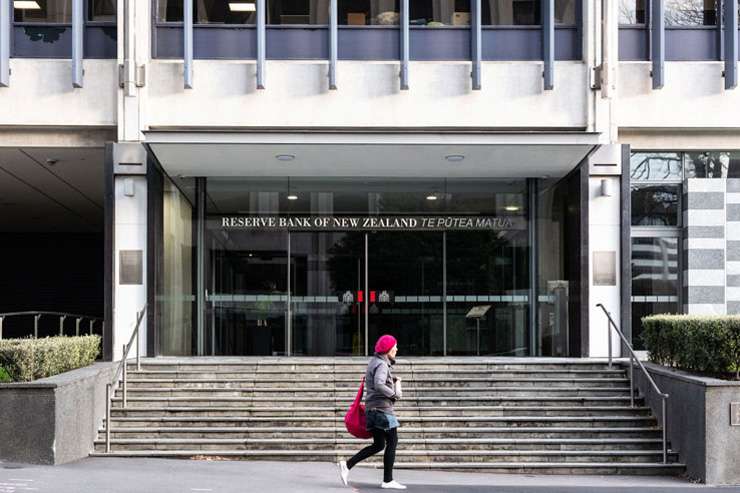The head of the Real Estate Institute of New Zealand says the property industry is bracing itself for a “subdued” summer.
The real estate body this week released its figures for November, and they painted a gloomy picture for agents who just a year ago were enjoying big sales and heightened market activity.
Residential property sales across New Zealand for November were down 36.1% on November 2021, and the median sale price dropped 12.4% year on year. Auckland and Greater Wellington were hard hit, with their sales volumes for the month down on November 2021 figures 43.5% and 36.2% respectively.
Auckland median price dropped from a record $1.3 million a year ago to $1.065m while Greater Wellington's median price was down 17.4% year on year, from $962,500 to $795,000.
Start your property search
REINZ chief executive Jen Baird told OneRoof that even though the year had been a tough one for the industry, there were no signs that a large number of agents were calling it quits.
“You are not actually talking about a lot coming out of the market just yet,” she said.
“We’ve seen people leave. We’ve also seen almost the same numbers join.”
The latest Real Estate Authority figures show 16787 active licences at the end of November - slightly up on the same time 12 months ago. However, the number of licensees has slightly dropped from mid-2022 where there were 16866.
A lot of people who lost their jobs in the tourism and airline industry at the start of Covid turned to real estate, Baird said, and even though some sectors are starting to call them back, not too many have responded.
“But it’s such a great lifestyle and I’m not seeing a whole load of people rushing back into those jobs that’s why the numbers are so strong,” she said.
“Plenty of them have done very well and have really, you know, been a bit of a duck to water in terms of this becoming their career.”

REINZ chief executive Jen Baird: “Real estate business will be doing what all businesses in New Zealand are doing as we head into a time of further economic tightening.” Photo / Fiona Goodall
However, Baird said it can be a challenging market especially when agents are relying on commission.
“It gets much more difficult for everybody and historically what we see is people making decisions for themselves and their families and people leave the industry.”
While historically the real estate sector has always gone around in cycles, the big difference this time is how fast house prices rose in 2021 and then fell again this year, she said.
“What’s different this cycle is the pace of the change.
“That’s what is different, but there are plenty of people in this industry have been around for quite a while, who have seen this stuff before and just know how to navigate this and understand that the conversations change. Vendors are nervous about what is going on at the moment as well.”
But people will always need to buy and sell property, she said.
“People aren’t always making a property decision first, they are making a life choice – it's time for me to retire, we’ve got to downsize or kids are teenagers – we've got to move into the school zone or whatever it might be.”
And as the real estate is expecting a tough start to 2023 with the Official Cash Rate tipped to rise again in February and in turn impact interest rates, Baird urged agents to stick to the basics.
“Basics are really important - the classic things like business planning and being really disciplined in your business and doing all the basics. Falling back on the relationships you’ve got and continuing to build those and being the trusted adviser in your local area – all stuff that works actually in any market. Those are the things that people will be refocussing on.”
She’s also aware of some of the larger agencies running programmes in the New Year to support and motivate their teams.

The Reserve Bank of New Zealand headquarters in Wellington. The bank is tipped to push the OCR to 5.5% next year. Photo / Getty Images
“Real estate business will be doing what all businesses in New Zealand are doing as we head into a time of further economic tightening probably. There’s been significant talk of recession so all businesses across New Zealand will be looking really carefully at how their businesses are put together and making decisions that work for them and real estate businesses are no different.”
Real Estate Authority chief executive Belinda Moffatt warned the number of active real estate licences don’t always tell the full picture as some people may have retired, moved overseas or changed occupations but still hold a licence because it is still within the 12-month renewal period.
Moffatt expects to get a clearer view on how many people have left in March next year when a large number of licences are due to be renewed.
However, she said there are already some early signs of softening in the sector.
The number of active licences issued by REA only grew by 115 to a total of 16,787 for the year-ended November 2022, which is a much lower growth rate compared with the previous year when it rose by 1265.
Approved applications have also slowed down in the second of this year from the large numbers from the record numbers experienced during 2021 and early 2022.
“The data indicates that while there is still some growth in the number of real estate licences, it is softening from the high number of licences seen in the period July 2020 to May 2022.”



















































































